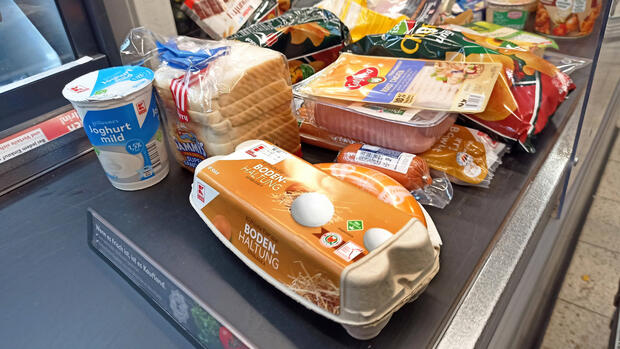Producer prices are seen as a precursor to the development of the cost of living.
(Photo: IMAGO/Martin Wagner)
Berlin German producer prices rose more slowly in April than they have in two years. The manufacturers of commercial products demanded an average of 4.1 percent more than a year earlier, as the Federal Statistical Office announced on Friday. In March it was still 6.7 percent. This is the seventh time in a row that the inflation rate has fallen since it peaked in August and September 2022 at 45.8 percent each. On the other hand, producer prices rose unexpectedly from March to April, by 0.3 percent. Economists surveyed by the Reuters news agency had expected a decline of 0.5 percent.
“All in all, not a dramatic figure, but it shows that inflation may be falling, but prices themselves probably aren’t,” commented LBBW economist Jens-Oliver Niklasch on the development. “This applies above all to the products further down the value chain, ultimately also to private end consumption.” If manufacturers raise or lower their prices, this usually has a delayed effect on private households – at least in part.
This time, energy only cost 2.8 percent more than in the same month last year. “Since energy prices had already risen sharply shortly after the start of the Russian attack on Ukraine in March 2022, this, together with the price declines of the past few months, led to only a comparatively moderate increase compared to the previous year,” the statisticians explained this so-called base effect.
Producer prices for capital goods, which include vehicles and machines, rose significantly in April: They were 6.8 percent more expensive than in April 2022. Food even cost 13.6 percent more. Sugar rose by 88.9 percent, processed potatoes by 40.5 percent and pork by 18.5 percent. 23.3 percent more was charged for milk and cream, while butter (-22.4 percent) and untreated vegetable oils (-35.7 percent) were cheaper.
The index measures the development of prices for the products produced in Germany in the mining, manufacturing, energy and water industries and sold domestically. All taxes and duties on the products are taken into account, with the exception of VAT. At a later point in time in the economic process, this also has an impact on consumer prices.
More: Less variety in the supermarket – manufacturers are cutting their range
